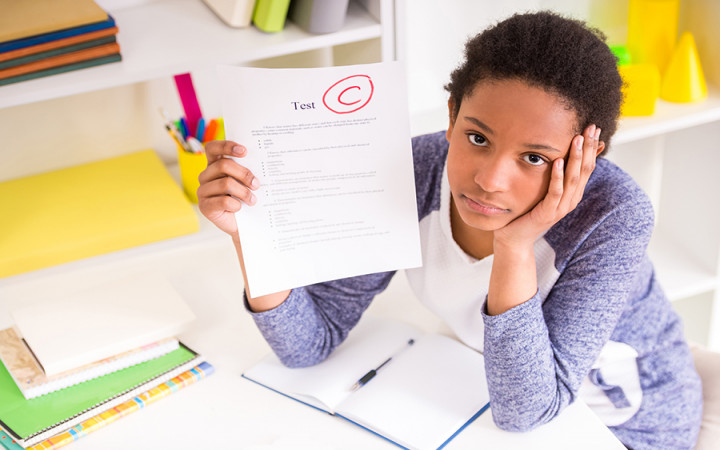Who loves to take tests? If you look forward to and enjoy every minute of taking tests at school, raise your hand! Wait a minute…why isn't anyone raising their hands?
OK, so taking tests probably isn't on anyone's list of super fun things to do. Studying for tests can be time-consuming and hard. The day of a test can be nerve-wracking. Actually taking tests can be both mentally and physically exhausting.
Even when you're finished with a test, you often can't relax. Why not? Many people feel a sense of anticipation or even unease as they wait for their graded test to be returned. When your test is handed back, you can look at the top of the front page for your score and a letter grade.
Depending upon your score, you may be happy, sad, or ambivalent. But at least it's over. Now you can move on and forget about it, right? Not so fast! Before you put that test away, take some time to dwell on your mistakes.
What? Are we kidding? Who wants to dwell on their mistakes? No one likes to make mistakes. Who would want to go over every single mistake in detail? According to many scientists, you should want to do that.
Why? Scientific studies are increasingly showing that mistakes can be powerful teachers. In fact, failure can be good for you…as long as you learn from your mistakes.
Sure, no one likes to make mistakes, but the simple truth is that we all do make mistakes. In fact, we make mistakes all the time. It's just part of life. No one is perfect. How we handle those mistakes, though, can make a big difference in how we learn and whether we make the same mistakes again.
In fact, reflecting upon mistakes in order to learn from them helps you to learn to think like a scientist. Much of what scientists do involves developing hypotheses (educated guesses) and then testing them to see whether they're correct or not.
Guess what? Hypotheses are often wrong! Do scientists give up? Never! They examine the results of their experiments and, through trial and error, revise their hypotheses and conduct new experiments to test them again.
Teachers can help students to think more like scientists by providing incentives to reflect upon mistakes and learn from them. Scientific studies have shown that encouraging students to examine their mistakes and teaching them how to learn from them promotes scientific thinking habits.
If this sounds like a lot of work, it can be, but that's OK. Research over the last few decades supports an idea known as the 10,000 hour rule. This rule holds that it takes approximately 10,000 hours to become an expert in any particular field.
This figure reveals the connection between practice and expertise. Not only is a lot of practice required, but experts point out that the type of practice matters. Research shows that the greatest gains come from deliberate practice, which involves identifying problematic areas, isolating the mistakes at issue, and then correcting the problems and mastering the problematic area before moving on.
While you probably aren't yet trying to become an expert in any particular area, you can use deliberate practice to improve in any area where you might struggle. Focusing on your mistakes allows you to concentrate your focus on improving in those areas in order to grow and learn.
So the next time you make a mistake, don't sweat it. Don't feel bad. Everyone makes mistakes. Rather than feeling stupid or embarrassed because you were wrong, choose to look at your mistake as an opportunity.
Take the time to figure out what you did wrong. Doing so will help your brain store your error in your memory, along with what you've learned from that mistake. These memories will help you avoid the same mistakes in the future, while also helping you learn to think like a scientist and learn from your mistakes!




